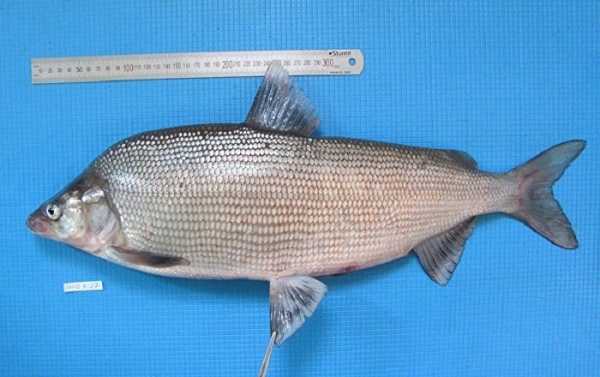
Scientists at Tyumen State University (TSU) have applied Surfagon (Surfagon is a synthetic nanopeptid, analogous to hormones released by the hypothalamus) to study changes in the gametogenesis of the muksun young, finding that the impact is able to accelerate pubescence in the species.
The muksun is a valuable whitefish species whose population in West Siberia has been steadily declining, which puts it on the verge of extinction. Muksun fishing has been banned.
But it takes a lot of resources to restore the Ob population, the main reason being delayed pubescence of the species (between age 4 and 7). This makes the creation of brood stock a protracted and difficult task.
“The existing reproductive technologies are inadequate where it is necessary to rapidly obtain pubescent species for artificial breeding. In muksun, gametogenesis slows down even under favorable conditions. The obvious reason is its hybrid origin,” Leonid Shuman of the Human and Animal Anatomy and Physiology Department said.
There is a long and successful record of hormonal impacts for scientific purposes, with researchers injecting synthetic hormones or homogenates or extracts of the hypophysis. They have studied Surfagon influences on gametogenesis and the state of inner organs in the muksun young to identify whether it is possible to “accelerate pubescence in pools with a recycling water supply.”
It became clear that Surfagon can considerably accelerate early gametogenesis, but there is a need for recurrent injections at certain stages in the life cycle to maintain the synthetic hormone’s impact.
According to researchers, hormonal regulation of gametogenesis depends on numerous factors like the hormonal background in the blood, the state of the hypophysis, somatic growth processes and external signal factors (hydrochemical conditions, photoperiod, currents, food availability, etc.), all of which have to be taken into consideration to develop an effective control system for the muksun’s sexual cycles.
Sourse: sputniknews.com






